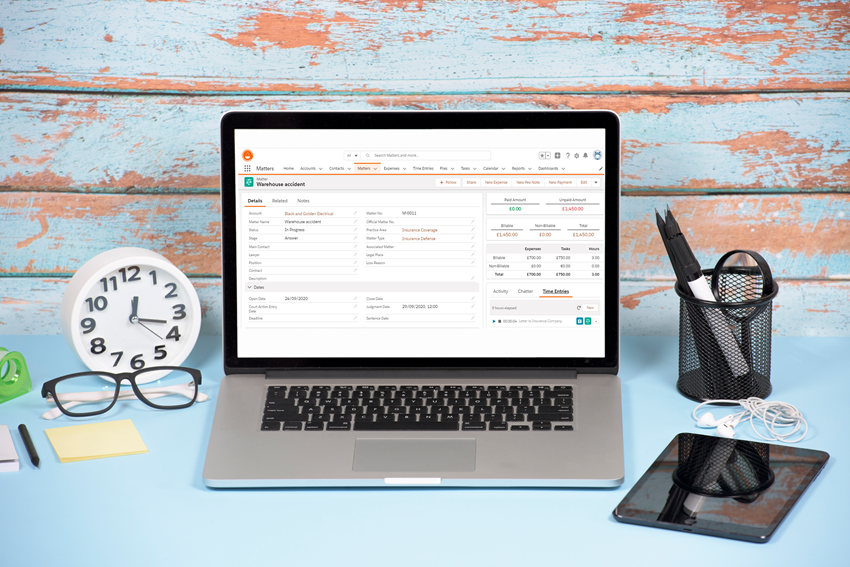Time management is a cross-cutting issue in all professional activities and even in personal life. This time management is precisely how you decide to use your time to make the most of productivity and achieve the goals set.
But as we know, time does not stretch: it is a fixed resource and, regardless of our efforts, it will always be 7 days a week, every day with 24 hours and every hour with 60 minutes. It is an unavoidable equation and we must make the best of it.
Although in this article we only want to deal with the time management component in the professional field, it is undeniable that in this field too, it is impossible to remain indifferent to the bombing of notifications - on the mobile phone or computer - whose function is precisely to steal our attention and undermine productivity. All these technological distractions contribute to an irreparable waste of time that has a profound impact throughout the hours, days and weeks of work.
For this and other reasons, time management in a project is one of the main challenges of a manager because, and not infrequently, given the large number of tasks to be performed, time control tends to be relegated to the second term.
The concept of time management has implicit the increase of productivity, that is, the ability to produce more and better in the shortest possible time. The idea is to be more effective (doing what we really have to do), to do things well (being efficient) and to be productive (making the best use of time).
Clearly, good time management brings numerous benefits, such as better task management, higher productivity, higher quality work, the end of postponement/failure of deadlines and, consequently, a lower level of stress and a better balance between professional and personal life! In short, effective time management in a company reflects its good functioning, giving more space to creativity and team spirit.
Fortunately, the technological market offers numerous solutions that greatly contribute to better time management - even in traditional areas such as law practice - both in terms of the automation of recurring tasks and as sharing and distribution them, among many other tools.
But if "Time is money", all the productivity control of the work team only makes sense if the time record is also rigorous.
The concept of time-tracking basically consists in recording how we invest (or spend) our time and is a useful practice to identify errors and optimize work. Above all, it allows us to acquire a large amount of information to analyse the processes and make decisions to better manage the respective resources.
When used correctly, time-tracking can also give us accurate information on the cost of time and energy for each employee and calculate the actual price of work, which makes billing much easier.
But this practice, although increasingly common, still struggles with some myths. Much of the resistance to record time comes from the presumption that it is used to control employees. What happens is exactly the opposite: this type of tool is based on the trust and responsibility of the employees, since the intention is not to calculate the number of hours that the person spent in the office, but rather, what tasks or activities they carried out for a certain project or client. Moreover, it is based on people's honesty, since the registered information will be useless if it is not done with accuracy and discipline.
It often happens that daily tasks less relevant to our work are very time consuming and keeping a record of where time is spent helps us to see which small tasks interfere with the planned work path. Time recording also helps to improve workflows, approval processes, or other processes.
So, if you work as a consultant, lawyer, freelancer or other liberal profession, you know how much more crucial this kind of time record is, since you most likely work for clients and bill them based on hours spent.
In lawyers' case, the Rolling Legal solution has a built-in time recording tool that helps users to record the time they spend on each task. Additionally, they can pause this time recording when they change activity or continue even outside the application, when they have to perform tasks outside the office. All so that the work done in each process can be easily justified and billed.
An important note concerns the difference between management and time control and when we talk about registration, we are talking about a measurement tool, not management! This time tracking does not serve to organise the work, but rather to keep a record of what has actually been done, rather than what we plan to do. And, above all, it allows us to have a clear vision of the real cost of a certain project, which helps a lot in predicting the cost of future projects.
Time management and time recording are complementary as they allow managers to better plan company resources, project results and find ways to raise productivity standards. In this way, they can plan how much to invest and in what, to raise quality levels, gaining strength and competitiveness in the market in which they operate.
And you? Will you start managing your time better?

